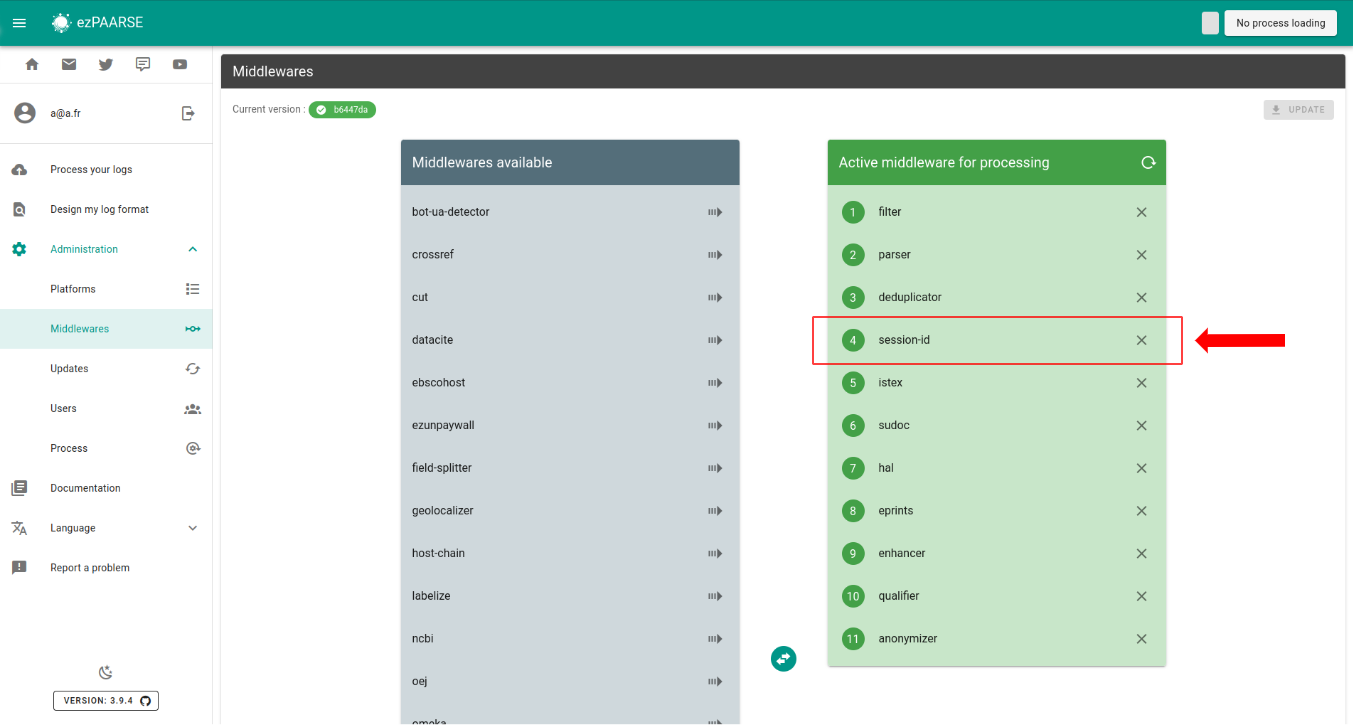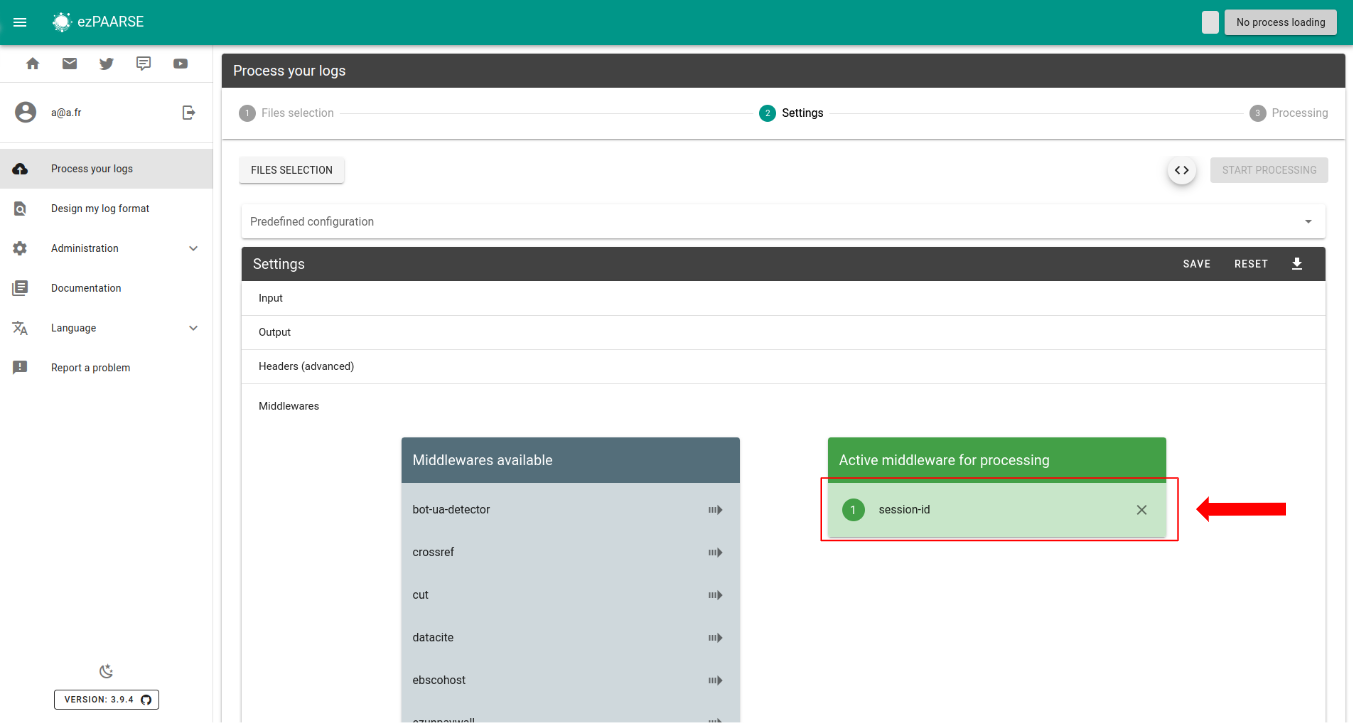# session-id
Generate a COUNTER compliant user ID and session ID in the fields user_id and session_id.
# Prerequisites
The user ID can be one of the following, by order of priority :
- the user login (default field: login)
- the cookie ID (default field: cookie)
- both the IP (default field: host) and the user agent (default field: user-agent)
The session ID is generated by concatenating the date, hour of day, and user ID.
Default fields can be changed with the Session-ID-Fields header.
Examples of generated user IDs :
- john.doe
- 157.244.176.142|Opera/9.80 (X11; Linux i686; U; ru) Presto/2.8.131 Version/11.11
Examples of generated session IDs :
- 2019-06-09|08|john.doe
- 2018-12-25|00|157.244.176.142|Opera/9.80 (X11; Linux i686; U; ru) Presto/2.8.131 Version/11.11
You must use session-id after filter, parser, deduplicator middleware.
# Headers
- session-id-fields : custom key assigned to a value, example: "userid: userid" or "userid: iduser" or "userid: iduser, user: idaccount"
# How to use
# ezPAARSE admin interface
You can add or remove session-id by default to all your enrichments, To do this, go to the middleware section of administration.

# ezPAARSE process interface
You can use session-id for an enrichment process.

# ezp
You can use session-id for an enrichment process with ezp (opens new window) like this:
# enrich with one file
ezp process <path of your file> \
--host <host of your ezPAARSE instance> \
--settings <settings-id> \
--header "ezPAARSE-Middlewares: session-id" \
--out ./result.csv
# enrich with multiples files
ezp bulk <path of your directory> \
--host <host of your ezPAARSE instance> \
--settings <settings-id> \
--header "ezPAARSE-Middlewares: session-id"
# curl
You can use session-id for an enrichment process with curl like this:
curl -X POST -v http://localhost:59599 \
-H "ezPAARSE-Middlewares: session-id" \
-H "Log-Format-Ezproxy: <line format>" \
-F "file=@<log file path>"